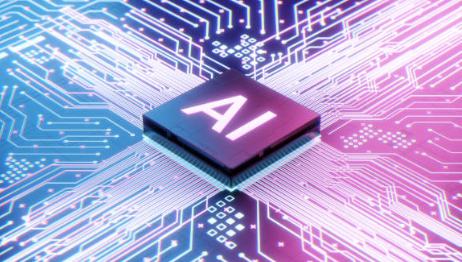From personalized recommendations on streaming platforms to advanced medical diagnostics and autonomous vehicles, AI is increasingly integrated into our daily lives, often imperceptibly shaping our experiences and decisions.
Enhancing Efficiency and Innovation
One of the most significant impacts of AI lies in its ability to enhance efficiency and spur innovation across various sectors. In industries like manufacturing, AI-powered robotics streamline production processes, leading to higher productivity and cost savings. Algorithms in logistics optimize supply chains, reducing waste and improving delivery times. Moreover, AI-driven design tools aid architects and engineers in creating innovative solutions that were previously unimaginable.
Transforming Healthcare
AI’s potential in healthcare is monumental. Machine learning algorithms analyze vast amounts of medical data to diagnose diseases with greater accuracy and speed than human experts. AI-powered systems assist in surgical procedures, providing real-time guidance to improve outcomes. Personalized treatment plans, tailored to an individual’s genetic makeup and medical history, are becoming increasingly feasible, paving the way for precision medicine.
Revolutionizing Communication and Interaction
Natural Language Processing (NLP) has enabled AI to revolutionize communication. Virtual assistants like Siri and Alexa respond to voice commands, manage schedules, and provide information instantaneously. AI-powered translation tools break down language barriers, facilitating global communication and collaboration. Chatbots equipped with AI capabilities handle customer service inquiries around the clock, enhancing user experience and operational efficiency for businesses.
Ethical and Societal Challenges
However, the rapid advancement of AI also raises profound ethical and societal challenges. Concerns about data privacy and security are heightened as AI systems collect, analyze, and utilize vast amounts of personal information. The potential for AI to exacerbate social inequalities, such as through biased algorithms in hiring or lending decisions, underscores the need for robust regulatory frameworks and ethical guidelines.
Employment Landscape and Skills Evolution
AI’s automation capabilities have sparked debates about its impact on the job market. While AI may eliminate certain routine tasks, it also creates new opportunities for jobs in AI development, data science, and AI ethics. The evolving nature of work demands continuous upskilling and adaptation to technological advancements, highlighting the importance of education and training programs that equip individuals with relevant skills.
Looking Ahead: Ethical AI Development and Regulation
As AI continues to evolve, ensuring its ethical development and responsible deployment becomes increasingly crucial. Stakeholders across governments, industries, academia, and civil society must collaborate to establish frameworks that prioritize transparency, accountability, and fairness in AI systems. Ethical considerations, such as bias mitigation and algorithmic transparency, must be integrated into AI development processes to foster trust and mitigate unintended consequences.
In conclusion, the impact of AI on modern society is multifaceted and profound, offering unprecedented opportunities for innovation, efficiency, and advancement across various domains. However, navigating its ethical, societal, and economic implications requires thoughtful deliberation and proactive measures to harness AI’s potential for the collective benefit of humanity while addressing its challenges responsibly. As AI continues to evolve, its transformative influence on society will undoubtedly shape the future landscape of human experience and interaction.
Economic Disruption and Transformation
AI’s integration into industries is reshaping economic landscapes worldwide. While AI-driven automation enhances efficiency and productivity, it also disrupts traditional job roles and demands new skill sets. Industries such as retail, finance, and customer service are experiencing significant transformations as AI-powered systems handle routine tasks, allowing human workers to focus on complex problem-solving and creativity. Economies are adapting to the AI revolution, with some sectors experiencing job displacement while others see the emergence of new opportunities.
Precision and Personalization in Consumer Services
AI enables unprecedented levels of personalization in consumer services. Recommendation systems on e-commerce platforms and streaming services use AI algorithms to analyze user preferences and behavior, offering tailored suggestions and content. This personalized approach enhances user experience and increases engagement, driving customer satisfaction and loyalty. In marketing, AI-powered analytics optimize advertising strategies by targeting specific demographics with relevant messages, maximizing campaign effectiveness and return on investment.
Advancements in Research and Development
AI accelerates innovation in scientific research and development across diverse fields. In pharmaceuticals, AI algorithms analyze molecular structures and predict potential drug interactions, expediting drug discovery processes. In climate science, AI models process vast datasets to model complex environmental phenomena and predict future trends, aiding in climate change mitigation strategies. AI-driven simulations and predictive analytics revolutionize material science, aerospace engineering, and other high-tech industries, pushing the boundaries of what is scientifically possible.
Cultural and Ethical Implications
AI’s influence extends into cultural domains, impacting art, literature, and entertainment. AI-generated artworks challenge traditional notions of creativity and authorship, prompting philosophical debates about the nature of art and the role of human agency in creative expression. In literature, AI algorithms can analyze and generate text, leading to the creation of AI-authored novels and poetry. These advancements raise questions about copyright, intellectual property, and the ethical implications of AI’s role in artistic creation.
Global Implications and Technological Sovereignty
The global adoption of AI technologies raises considerations of technological sovereignty and geopolitical competition. Countries and regions invest heavily in AI research and development to gain competitive advantages in innovation, economic growth, and national security. Discussions on AI ethics and governance are increasingly internationalized, with efforts to establish norms and regulations that ensure responsible AI deployment and mitigate risks such as data privacy breaches and algorithmic biases on a global scale.
The Future of Human-AI Collaboration
Looking ahead, the future of AI in society hinges on fostering productive collaborations between humans and machines. Ethical AI development frameworks, inclusive governance structures, and continuous dialogue between stakeholders are essential to harness AI’s potential while mitigating risks. As AI technologies evolve, emphasizing human-centric values, transparency, and accountability will be crucial in shaping a future where AI enhances human capabilities, fosters innovation, and promotes inclusive societal progress.
Conclusion
Artificial Intelligence is reshaping modern society in profound and multifaceted ways, from economic transformations and personalized consumer services to advancements in research, cultural implications, and global governance. Embracing AI’s potential while addressing its ethical and societal challenges requires proactive efforts to ensure that AI technologies contribute positively to human well-being and collective advancement in the years to come.






